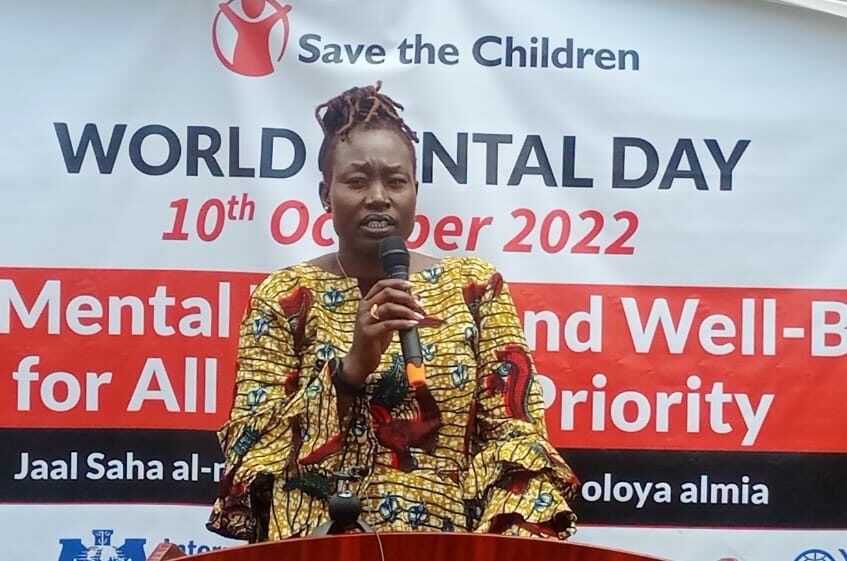
Minister of Health, Yolanda Awel Deng. (Photo: Malual Atem/Eye Radio).
The Minister of Health has appealed to the public to desist from stigmatizing patients with mental disorders and health workers providing healthcare service for them.
Yolanda Awel Deng made the remarks at the event to mark the World Mental Health Day.
Awel, a professional mental health expert, said she has encountered family criticism as to why she went to medicines only to become a doctor for the mentally impaired.
“For a long period of time, my mother used to ask me how I went to school to study medicines and ended up being a ‘doctor for mad people.’ It is not that something went wrong but we need to put a priority on it,” she said.
According to her, such labeling of mental health workers can create barriers to caring for the mental well-being of the suffering persons.
“Our South Sudanese community is quick to stigmatize mental health workers and people with mental health illnesses,” the health minister said.
“As I am standing in from you now, I have mental health patients who are locked up in prison because their families see them as ‘majnun sakit’ (loosely translated as mad and useless in Juba Arabic).”
Speaking during the World Mental Health Day, Minister Awel added: “Besides being a minister, I have been given a little ‘Doctor for the mad people’…that alone is a stigma right there.”
“People laugh about it but labeling a mental health expert or somebody sick like that (makes) people shy away.”
World Mental Health Day is observed every October 10, to raise awareness on mental health issues and promote action through proven means that will reduce the occurrence of mental health disorders.
This year’s theme is to “Make mental health and well-being for all a global priority.”
Speaking at the same event in Juba on Monday, Fabian Ndenzako – the Country Representative of the World Health Organization – said mental programs should be integrated into the primary healthcare level so that the services reach most people in need.
“We have to integrate mental in all the existing health programs and we have to make sure that we implement, support and encourage the task shifting,” said Fabian.
“If somebody is being trained to manage malaria cases or maternal child health, they should also be given an element of training to make sure that mental health is covered, so, integration and task shifting are some of the quick means in terms of using scaling up mental health response.”
“We also must make sure that mental is really taken at the primary healthcare level. As a part of the integration, it has to be integrated into the primary healthcare level where many of people live.”
South Sudan has had one of the highest suicide rates in the world since 2014, partly attributed to mental ailments, according to the World Health Organization.
The country is also said to have one of the largest mental health gaps in the world, with rates of mental health disorders, sometimes, increasing up to 4% for severe conditions and up to 20% for mild to moderate disorders requiring care and support.
Support Eye Radio, the first independent radio broadcaster of news, information & entertainment in South Sudan.
Make a monthly or a one off contribution.
Copyright 2024. All rights reserved. Eye Radio is a product of Eye Media Limited.